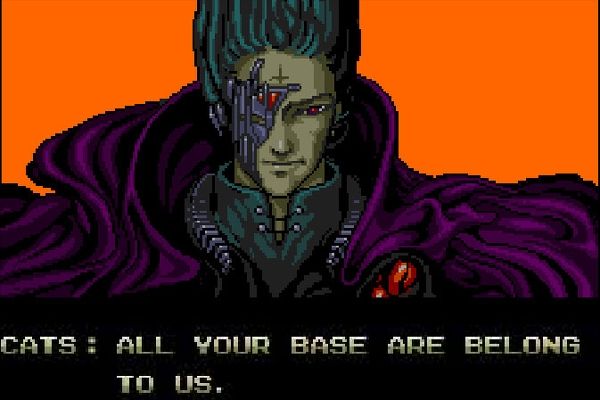"All your base are belong to us"
This translated quote (Japanese to English) from the computer game Zero Wing is just one example of how translations of computer and video games can clearly fail.

Image source: http://whatculture.com
Contrary to earlier days, games are no longer translated by a lone translator. Apart from the scale, translating games can be incredibly complex projects. Star Wars: The Old Republic has 200,000 lines of recorded dialogue and that even scored an entry in the Guinness Book of Records. Without the support of a strong, professional tool and a well-organized process, a high-quality translation is not possible.
The type and nature of a game determines the approach to the translation. Complex role-play games like that which include a challenging story are quite different from simpler games for smart phones and browsers. Common to all is that the language and pictures work hand-in-hand. While translation, in itself, is complex, localization, or the adaptation to a specific market must also be taken into consideration. Jokes or onomatopoeia cannot be exactly translated and must be modified. Meaning can be lost even within the same language. A famous example comes from the popular Point & Click Adventure Monkey Island 2: In the game, a hypnotized monkey had to be used as a "monkey wrench". This term is not a problem for American-English speakers, but British-English speakers call the tool a "spanner", and the joke and play on words is completely lost.
Thanks to such early examples, there is now a greater understanding of the need and focus on localization. It is a time-consuming process that needs to be taken into account in tandem with the actual game development. Games are introduced simultaneously in different language markets, and marketing campaigns have to be coordinated and scheduled.
The best scenario is for developers and translators to work on a common platform - optimally simultaneously. It is imperative to understand contextual conditions and to follow the meaning of the text. As has been proven by experience that translating word for word doesn’t work. Knowledge of the respective culture and the local game industry is also an advantage.
Another old example of fast and unprofessional localization is the "Schw.Tr.d. Le.en.-W." in the German translation. This abbreviation stands for "Weak Potion of Healing" in the role-play game The Elder Scrolls: Oblivion . The game developer, Bethesda Game Studios, had the game translated quickly by their own staff. This led to, among other things, terrible reviews and, in the end, the errors had to be repaired by way of a cumbersome patching process.
These, along with many other examples, show that the localization of games is not trivial and cannot just be “done along the way”. The quality of localization in games affects the enjoyment of the users and, in turn, sales in the respective target market.
ONTRAM excels in this area with a web-based translation management system that includes terminology management. Our product has proven to support the entire translation process, helping companies cope with the growing, specific requirements of different game locations.

